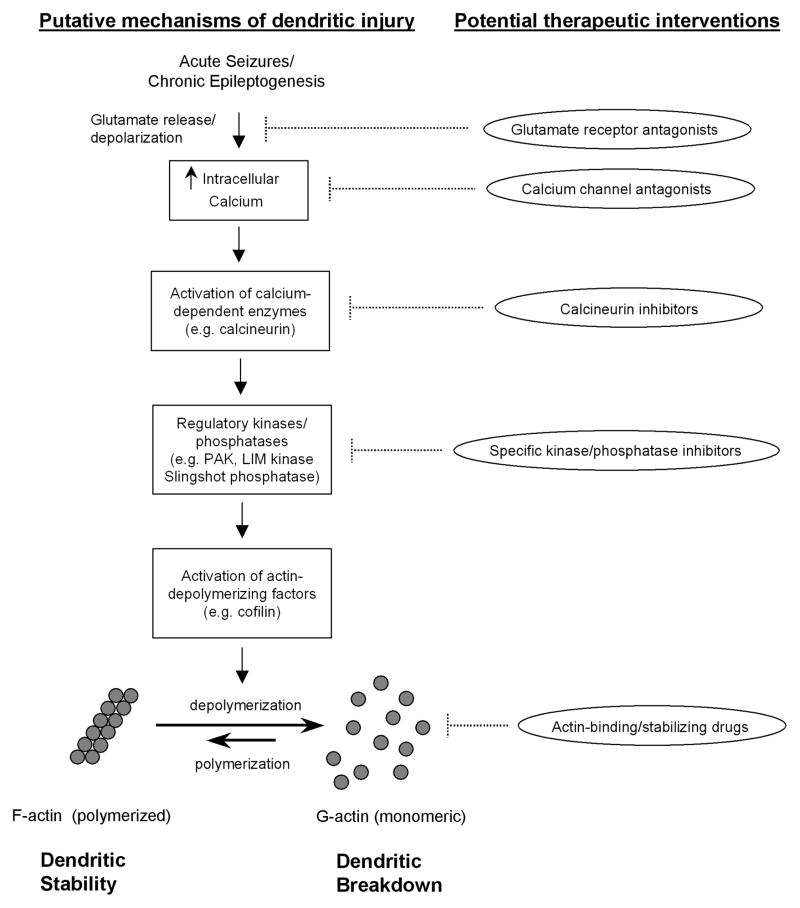Figure 2.
Putative signaling pathways and molecular mechanisms mediating dendritic injury in epilepsy. Acute seizures and chronic epileptogenesis may be associated with increased intracellular calcium in dendrites due to neuronal depolarization and excessive glutamate receptor and calcium channel activation. Elevated intracellular calcium may activate calcium-dependent enzymes, such as calcineurin, triggering a cascade of downstream kinases and phosphatases. These regulatory kinases (e.g. PAK and LIM kinase) and phosphatases (e.g. Slingshot) control the activity of actin binding proteins and depolymerizing/polymerizing factors due to changes in phosphorylation states. Ultimately, activation of actin-depolymerizing factors, such as cofilin, can cause depolymerization of filamentous actin (F-actin), leading to the breakdown of the actin cytoskeleton of dendrites. From a therapeutic standpoint, multiple steps along this pathway could be targeted to prevent dendritic injury, although the specificity and safety of such interventions are uncertain.

